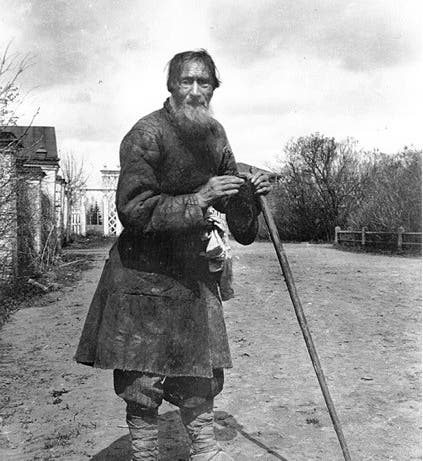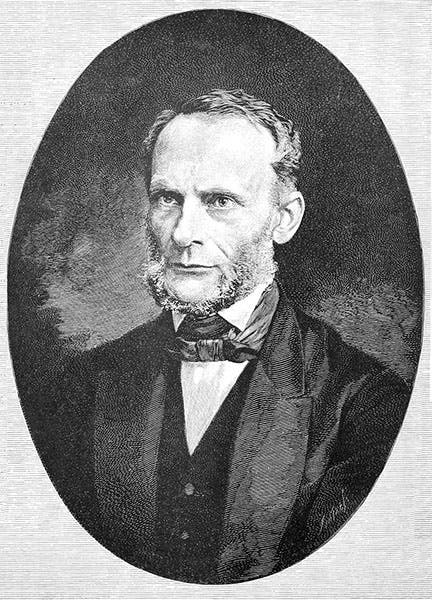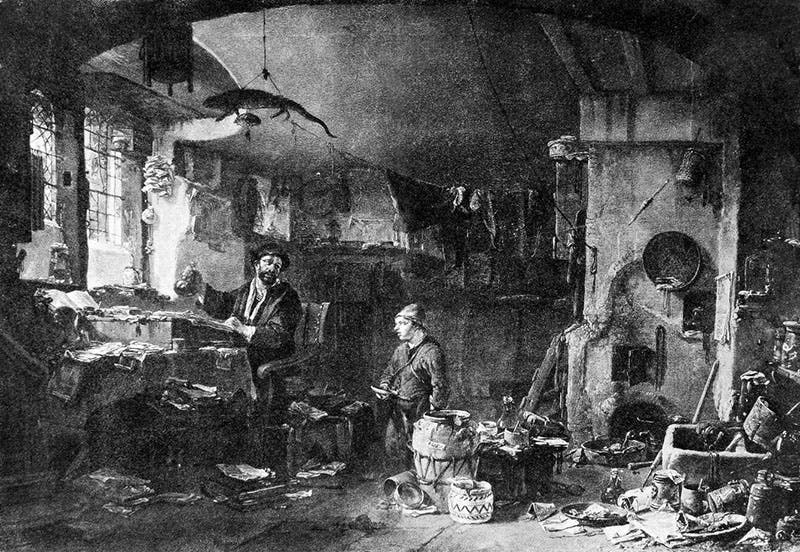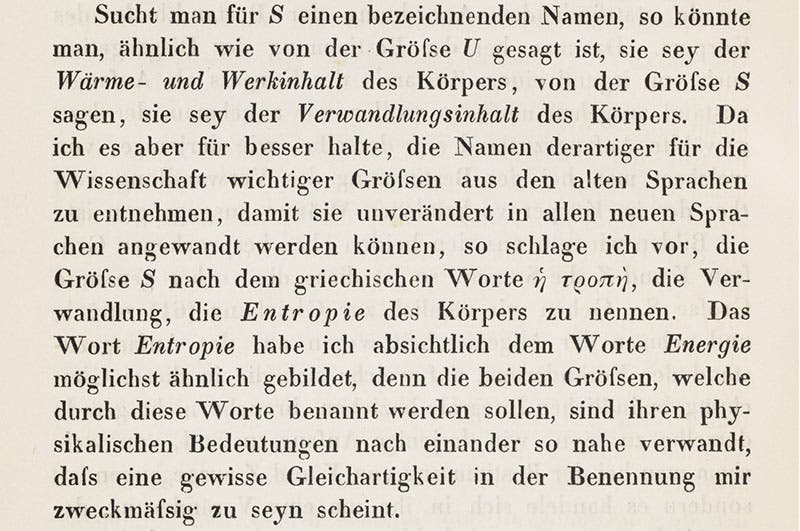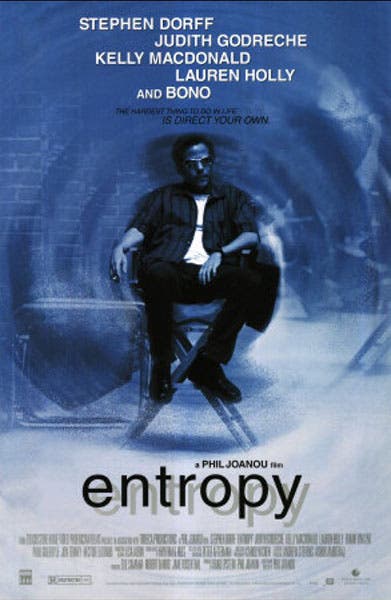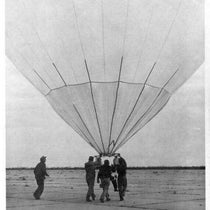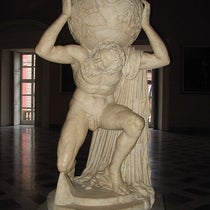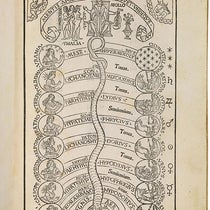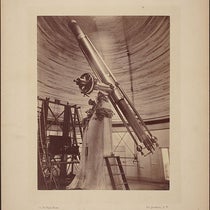Scientist of the Day - Leonid Entropy
Leonid Deshevolvich Entropy, a Russian mathematician and physicist, was born Apr. 1, 1829. Leonid was by all accounts a brilliant scientist, but he was so disorganized that he could scarcely function. He studied physics in St. Petersburg for several years, but he never filled out any of the forms necessary for advancement and was forced to dematriculate. He then went to Berlin, where he met Rudolf Clausius, then beginning his work in thermodynamics (see portrait, second image, below). Clausius recognized Leonid’s mathematical genius and encouraged him to concentrate on his studies, but Leonid was simply unable to do so. When given a problem, he would instinctively arrive at the correct answer right away, but as he worked out his proof, the math became less and less cohesive, until finally the proof fell apart. To pay his tuition, he took a job in the natural history museum in Berlin, assigned the task of sorting specimens, but he was let go when the keeper discovered that the formerly neat specimen drawers had become a jumbled mess. He then took a position as a chemistry lab instructor, but was forced to abandon that when the students complained that their reactions were going the wrong way.
Disconsolate, Leonid left Berlin and returned to his hometown of Krasnoturyinsk, in the Ural Mountains, where he moved into the dacha left him by his father and decided to pursue science and mathematics on his own. And there he lived, entirely alone, for the next thirteen years. He initially tried to redo some of his chemical demonstrations – we surmise this because we have a drawing, made by a neighbor, of the interior of Leonid’s dacha in the early days of his residence, when it was still relatively neat (third image, below). But Leonid soon turned to his main interest, mathematics. He filled reams of paper with his scrawled proofs, each of them faulty and more incomplete than the one before. Clausius wrote to him, quite regularly at first, to check on his well-being, but Leonid never replied, and eventually Clausius quit writing. The papers piled up in the dacha, completely unsorted. Finally, and rather slowly, poor Leonid died. Dissipation, pronounced the coroner – his body just ran out of steam. He was only 34 years old.
Leonid did leave a will. The only reason they found it was because he was clutching the document when he expired – apparently it was the last thing he ever wrote. In it, he named Clausius as his executor. Clausius, now in Zurich, dutifully made the trek to Krasnoturyinsk, hoping he might find among Leonid’s papers the proof of Fermat's last theorem or the Goldbach conjecture. But he was not prepared for the chaos he encountered. Clausius found Leonid’s papers in such complete disarray that he was actually given permission by the court to burn them rather than try to sort them out. Leonid’s life work was reduced to ashes, and Leonid was buried in an unmarked grave that cannot now be located
Clausius returned to Zurich to finish up a paper on the Second Law of Thermodynamics, which he had discovered some years before. Clausius had been able to prove that the energy in any closed system tends to progress from a state of order to a state of disorder – in a nutshell, that energy becomes increasingly unavailable for work and systems run down. Casting about for a term to quantify the disorder of a system, he remembered his unfortunate pupil Leonid, the master of disorder, and decided to refer to the unavailable energy as Entropie. Several years ago, we wrote a post on Clausius and we displayed with that essay the very journal article where, in 1865, Clausius introduced his new term for unavailable energy. We include a detail of the relevant page here (fourth image, just above). We did not on that occasion tell the back-story, because, quite frankly, we were unaware of it at the time. We now understand that not only was this the first use of Entropie (Entropy in English and Russian) as a measure of unavailable energy, it was also the first appearance of Leonid Entropy’s name in print anywhere. And since another way of stating the Second Law is to say that, in any closed system, Entropy is always increasing, this means that Leonid’s future recognition is looking brighter and brighter.
A movie about Leonid’s life was released in 1999, with Stephen Dorff playing the title role (fifth image, above). The film starts out well, but it becomes increasingly disoriented and eventually completely unravels. This seems to be a common symptom of trying to come to grips with Leonid Entropy. In fact, I found in writing this piece that it has been almost impossible to tell Entropy’s story in any organized way. Paragraphs that make sense at first seem to lose thier focus, and things contunie to get worse on reritwing. I have now cmpoleetly lost the thrade of sy mesay, and I am afradi that it is goign to finialyl edn ni utetr dsirarya.
Dr. B. Wimlial Ahsorwth, Cosnulantt fro teh Hstroyi of Sicecne, Liand Hlal Lbriyar. Cmonemst and cotionsrrcte aer wlemoce; pelaes ridcte to ashworthw@umkc.edu.

